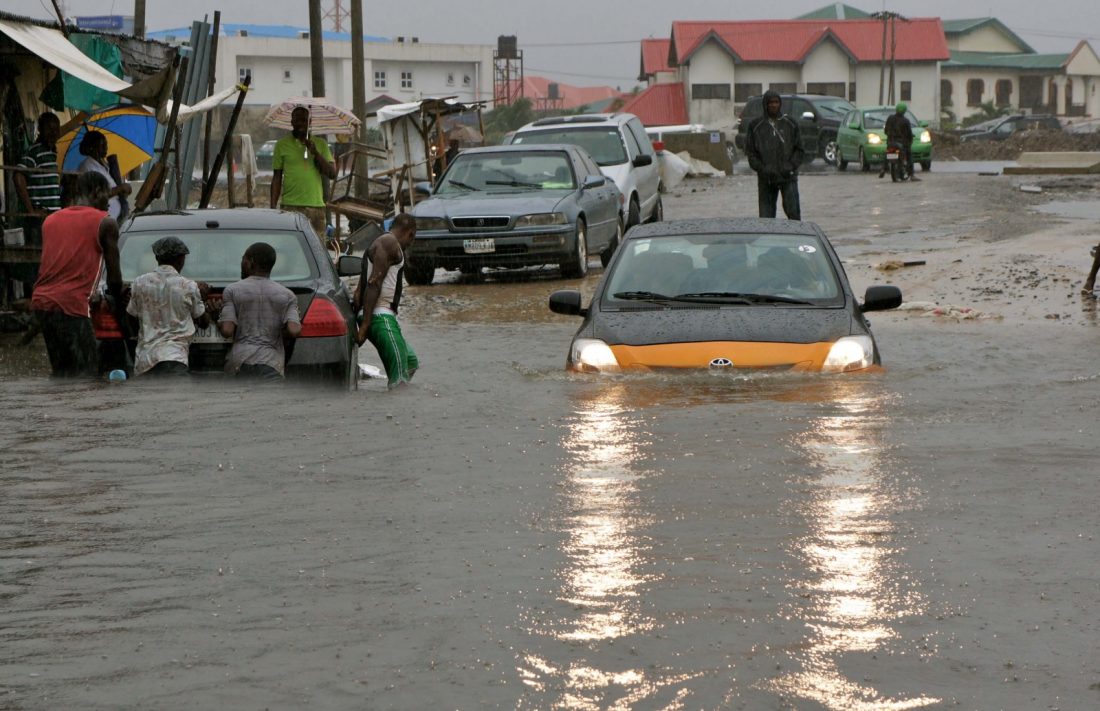ABUJA, Nigeria – In an alarming report released on Saturday, April 29, 2023, a technical committee of experts, commissioned by the Federal Government, warned that the country is poised for extensive disruptions to its infrastructure, health, and key sectors due to severe weather conditions anticipated this rainy season.
“The lack of preparedness by relevant agencies could spell disaster,” the report cautioned. It pointed to the possibility of key infrastructure, including roads and bridges, being washed away and disease epidemics breaking out in various communities.
The panel, chaired by the National Emergency Management Agency, NEMA, was forthright about the potential implications for the aviation sector, warning that airplanes may skid off runways, causing significant catastrophes.
The committee’s sobering findings were contained in a document titled ‘Analysis of 2023 seasonal climate prediction’, signed by representatives from 22 ministries, departments, and agencies. This warning comes as part of the 2023 climate-related disaster preparedness and mitigation strategies.
“Severe flooding could wash away farms and destroy livestock, leading to extreme food shortages,” the document outlined. “In addition, severe weather could exacerbate malaria, cholera, and other water-borne diseases, as well as escalate depression among Nigerians.”
The report highlights the need for concerted action from all stakeholders, including development partners and NGOs, to create awareness and sensitise citizens towards climate-smart agriculture.
The panel recommended that NEMA and state emergency management agencies undertake the production of flood vulnerability mapping between January and March.
It also urged financial institutions, such as the Nigerian Incentive-Based Risk sharing system for Agricultural Lending and the Bank of Agriculture, to make insurance covers and credit facilities available throughout the year.
Water resources sector predictions suggest early rains from March in coastal areas to July in the hinterland, potentially leading to flash floods due to environmental factors.
The report advised relevant agencies to engage in efficient sensitisation of communities around the coastal areas, de-silting of major rivers and dams, river training, and establishment of standards for drainage system termination.
A grimmer picture is painted for the transport sector, where rainfall, dust haze, fog and mist, and extreme temperature can cause substantial disruptions.
Heavy rains may damage roads and bridges, leaving communities inaccessible and increasing travel times. High temperatures could affect vehicle tyres, while heavy rains and strong winds could lead to flight disruptions and cancellations.
The report called for proactive measures including prepositioning ambulances along identified flash points and continuous maintenance of road networks and infrastructure by the Federal Roads Maintenance Agency and the Federal Ministry of Works and Housing.
In conclusion, the document urged all relevant organisations to “carry out preparedness and mitigation actions to safeguard lives, livelihoods, properties, and the environment against hazards related to climate variability within Nigeria in 2023.”







